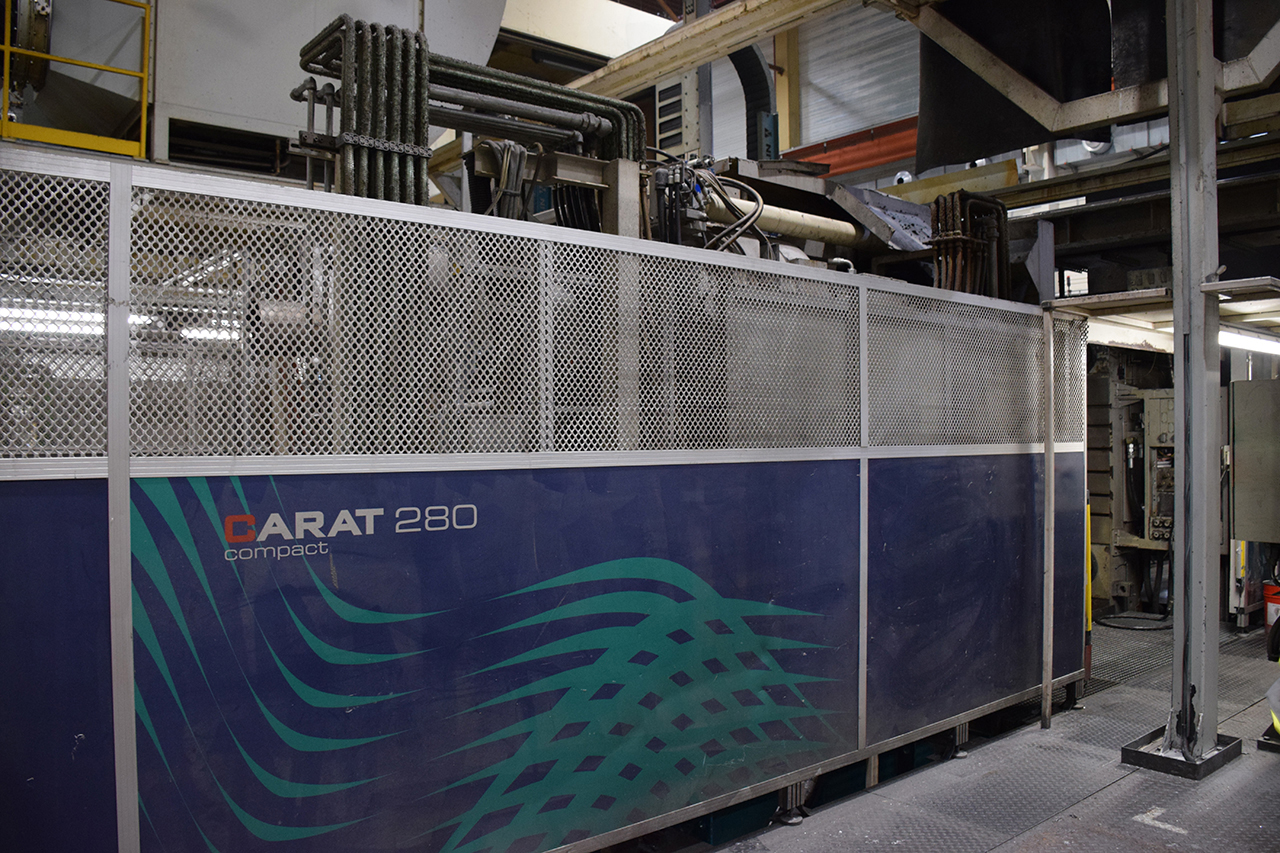Fiss sells used die casting machines to Turkey: Two Buhler Carat 280 compact went on the road

On behalf of a customer, fiss machines routinely dismantled, packed and shipped two Buhler Carat 280 compact in assemblies to Turkey in 2021.
In the summer of 2021, fiss was commissioned to offer the two identical Bühler Carat 280 compact die casting machines on the international second-hand machine market. Since the expert for used machines not only organises the marketing but also the relocation and commissioning of the machines, the selling company had the ideal partner for a quick sale at its side. The Buhler Carat series is a two-platen die casting machine manufactured with clamping forces from 10500 to 92000 kN. It is used for casting large and complex components.
ADVICE AND NETWORK
There was already a successful business relationship between the buyer of the used machines and fiss machines. The company had previously purchased a Bühler Evolution 140 die casting cell as well as a Rösler vibratory finishing system and temperature control units from the Winterbach-based company's machine range. The people in charge from Turkey know the advantages from fiss' comprehensive consulting and the worldwide networking to almost all countries around the globe. Perfect to increase their own machine park. They were looking for casting cells for the production of aluminium battery housings. When the second-hand machines were found and the contracts signed, the next phase began.
PLANNING AND DISMANTLING
Before the used casting cells were relocated, the complex dismantling went into an extensive planning phase. fiss machines has 30 years of well-founded expertise and is a reliable partner for all parties involved, planning with foresight and paying attention to every detail. Both the dismantling and the subsequent transport are analysed in detail in advance. Project planning always includes an individual strategy for successful implementation. For this purpose, it was necessary to plan the dismantling for each used machine individually. For example, the dismantling of the first casting cell took place in August 2021, and the second phase was scheduled for November 2021. For the removal of the Buhler Carat 280 die casting machines, this project required the design of the removal of the heavy components via a platform on the 3rd floor, with the heaviest part weighing 43 tonnes.
During the dismantling by fiss machines, about 30 employees were on duty at any one time. The dismantling was done in several shifts. Several teams also worked on Saturdays and Sundays. First, the automation equipment and peripheral systems such as KMA extraction systems, tempering units, dosing ovens, Ertl coarse deburring systems and parts labelling were dismantled. The Ertl rough deburring systems and parts labelling were not included in the scope of delivery.
During the disassembly, the disassembly team marked and photographed all machine parts, and complex work was thoroughly documented by video. In parallel, the customer in Turkey was kept informed about the current status and progress throughout the entire dismantling process. By mid-September, all machine parts of the first Buhler Carat 280 die casting machines were ready for removal and could leave the factory premises. The second used machine was properly dismantled and packed for further transport at the beginning of December.
TRANSPORT AND ASSEMBLY
fiss machines is an experienced partner for the international transport of complete casting machines. Every machine transport has its specific requirements and requires individual planning of the individual steps for the optimal transport route. In addition, it is important to know the legal transport regulations in the destination country in advance and to include them in the planning, as they may differ from ours.
The transport to Turkey was mainly done by truck. Heavy components were sent by sea freight. A total of 8 trucks and 5 heavy goods transporters per casting machine went on the journey for about a week. 5 special packages on RoRo or in crates were shipped from Germany. Before the casting cells could be set up, the customer first had to create the appropriate space in the foundry, for which major reconstruction measures were necessary. All packages of the used machines were temporarily stored during this time.
For cost reasons and due to the ongoing Corona restrictions, the customer will carry out the assembly and commissioning on its own as soon as the production area is prepared. fiss has, however, promised the necessary support from Germany and provides assistance with questions, for example, about the placement of the automation equipment and calculations of necessary cooling capacities.
